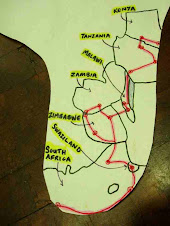Beginnings of the Cross Pollination Project in Portland
Click here for the introduction to the Cross Pollination Project.
Here is some of the recurring feedback that I’ve heard about the Cross Pollination Project (CPP) as I’ve interviewed key organizers across Portland:
*Getting one’s issue heard by “others” is very important. This is the essence of the project, and it seems to be ringing true for many people: we are all so caught up in our own issue silo, and it feels hard to get out or reach out. Finding a mechanism for more information exchange (and strategic coordination) is key. The CPP may be one such method.
*Building new leadership is critical. The leaders, staff or key volunteers of an organization are often overworked, and it is sometimes hard to cultivate more people to take leadership roles. The CPP works with people who are involved in some kind of social change group but are not super stressed out and at the “top of the ranks”. By representing their group/issue and filling a new role of being a link between their group’s work and others’, they will hopefully feel more deeply connected to their own work and social change as a whole. They will develop skills for effective communication and coordination, thus increasing their capacity for action—leadership development!
*Non-profit industrial complex (NPIC) and the desire for movement outside of bounded groups. This NPIC stuff is real. For example, in Portland, I have heard multiple stories of the few “organizations of color” feeling more competitive than collaborative in their fight for injustice because of their scramble for the few grants and other resources designated for groups of color. They tend to be forced to each fill a niche and struggle for attention from the institutions and mainstream (white) society that has the access to power or resources. Yet whether the work is about police racial profiling, equal access to education or immigrant rights, coordination would benefit all. Read **here** for more nuances of the NPIC. Again, it feels like the CPP could help bridge some of these perceived boundaries by finding ways to explore root connections and build grassroots empowerment and resource sharing outside of current moulds.


No comments:
Post a Comment